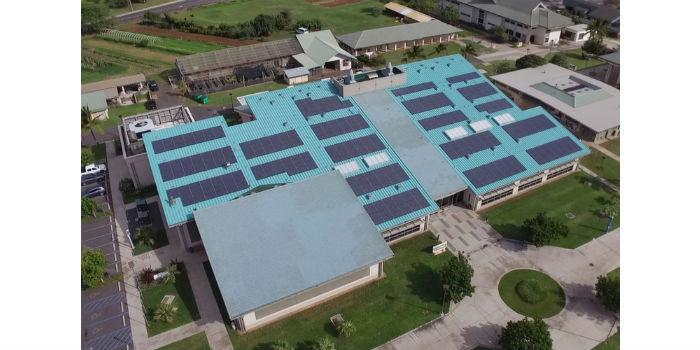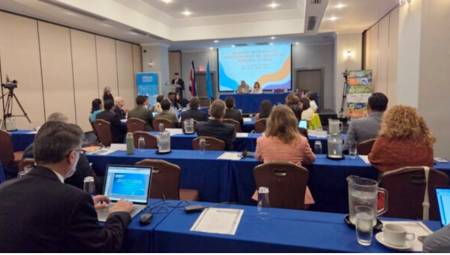 United States. The University of Hawaii (UH) announced that its Maui College campus will soon be among the first in the country to generate 100% of its energy from on-site solar photovoltaic (PV) systems, along with battery storage. The project is part of a partnership with Johnson Controls and Pacific Current that will also allow four UH community college campuses in O'ahu to significantly reduce fossil fuel consumption.
United States. The University of Hawaii (UH) announced that its Maui College campus will soon be among the first in the country to generate 100% of its energy from on-site solar photovoltaic (PV) systems, along with battery storage. The project is part of a partnership with Johnson Controls and Pacific Current that will also allow four UH community college campuses in O'ahu to significantly reduce fossil fuel consumption.
UH Maui College's new PV plus storage system will be able to eliminate energy use from the fossil fuel-based campus when it becomes operational in 2019. In O'ahu, by combining sun shade awnings, distributed energy storage and energy efficiency measures, Leeward Community College, Honolulu Community College, Kapi'olani Community College and Windward Community College will reduce the use of fossil fuels for energy by 98%, 97%, 74% and 70%, respectively.
In 2015, Hawai'i became the first state in the country to make an unprecedented commitment to reach 100% renewable energy by 2045. At the same time, UH and the Hawaii Legislature set a collective goal for the university system to be "net zero" by January 1, 2035, meaning the system would produce as much renewable energy as it consumes on its campuses.
Of the ten campuses, UH Maui College is on track to be the first to supply 100% of its energy needs through renewable energy.
The partnership between UH, Johnson Controls and Pacific Current is the second phase of a multi-year renewable energy and energy efficiency project. In the first phase, energy efficiency measures were successfully implemented at UH Maui College and O'ahu's community college campuses under energy performance contracts awarded to Johnson Controls in 2010. The second phase includes additional energy efficiency improvements and the installation of on-site photovoltaic solar panels with battery storage, allowing all five campuses to use the generated renewable energy as needed. The PV plus storage systems will be developed by Johnson Controls and will be owned by Hawai'i Pacific Current. The energy efficiency improvements will also reduce the backlog of deferred maintenance on these campuses by approximately $20 million.














